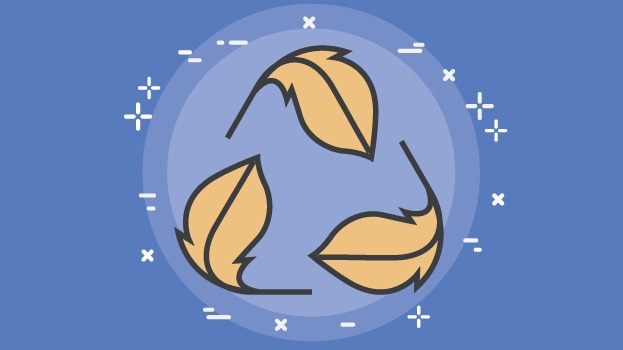Polyglot Group has been doing business with international & multicultural companies based in more than 50 countries all around the world for over 20 years.
In celebration of these partnerships, we will be promoting bilateral trades by interviewing some of the key players. Keen to know more about the current challenges faced by the countries we are representing such as Latin America, Europe, Asia & the US, we are thrilled to launch our Interview Series today with Elizabeth Rozas, the Co-Founder & International Marketing Manager at Somos21.
Could you please introduce your organisation?
Our organisation, called Somos21, is a not-for-profit organisation that brings young Australian and Latin-American professionals together to build networks, foster professional development and explore business opportunities. We launched the organisation in 2014 with a Sydney chapter and are now looking to grow Australia wide.
Our core focus is on creating a space where Latin American and Australian professionals feel able to create meaningful business. This business can be anything from finding work opportunities, to establish their business or exchanging their common knowledge. We created Somos21 as we felt that there was a gap in the market in terms of organisations that support different demographics.
Australia holds a variety of organisations that support students, as well as quite a few that support business professionals, yet we felt there weren’t any that purely speak to human capital exchange between Latin America and Australia. We’re still quite a young organisation, but we strive to provide our network with information and awareness, particularly in terms of how to benefit from the network.
The story behind the name comes from the fact our network is comprised of young professionals from 20 countries of Latin America who have settled in Australia who are eager to contribute to a strong and dynamic workforce in Sydney and beyond. WE ARE 20+1 = SOMOS21.
What type of services can you offer Latin American companies looking for new business opportunities in Australia?
Our target consists of professionals & human capital. As an organisation, we can offer a network which can be utilised when companies are trying to relocate to either Australia or Latin America. For example, our network can be used to obtain information and/or get in contact with somebody who’s on the ground. With this unique opportunity, companies and/or individuals can acquire more information about the local environment they are looking to join.
From information about lifestyle, to foreseeing potential networking challenges – Somos21 is here to answer all of the question marks that arise when one is relocating internationally. In the long term, we want to make sure that when they do relocate, they feel more secure in that relocation. They are more likely to return feeling satisfied, as a result of being prepared earlier.
Are you subsidised by Spain or is your organisation membership based?
The organisation is membership based, although we are looking at different types of strategies. We are currently considering several sponsors or affiliates that could collaborate with us, and help us financially. On the other hand we are also looking at strategic alliances by bringing different local players with us on this journey. By sharing with each other we can then provide our members with better options.
How many members do you have?
At the moment, we are at 380 members, which is an ever-growing number, especially after one of our events. I think in order to continue increasing in membership, we have to continue to show value. This will not only retain those who are already with us, but also give them the incentives to become advocates of Somos21 in terms of bringing new people to the association.
Unfortunately, the ratio of Latin-American countries that are coming to Australia is still quite low, with the majority of them specialised in mining (which is an industry that is rapidly slowing down in Australia). However, we are looking forward to that number increasing in the future and to be present for those companies when they do decide to expand across borders.
What are the organisation’s main accomplishments since you took office?
I think it’s definitely about establishing ourselves and getting credibility from the network. People look to us as an opportunity and acknowledge that our value proposition is meeting their expectations.
In addition, we are establishing a very robust team and have attracted a lot of high performing Latin Americans and Australians who have all brought they own unique set of skills. So as a whole, our team is growing to become extremely versatile which is the epitome of what it means to be Australian.
I also believe that establishing such a unique and formidable setup here in Sydney will reflect on our future vision of how we want to expand. Our Sydney setup will be the model we follow when we look to establish similar chapters in other cities such as Melbourne and Brisbane. This expansion will ultimately make our dream of having a national presence and a national network a reality.
How do you perceive the Australasian region in general regarding its regulations, market trends as well as geography of business for Latin Americans?
In terms of regulations, it’s like any other country. It is important to understand its local laws, the different processes to go through and what it takes for a project to come to fruition in order to get what you need. So I think it’s really important for Latin Americans to educate themselves and get a full understanding of what is required to achieve their goals.
When we reach out to that audience, we need to help them find that information before they make any big decisions. This is important to avoid disappointment in terms of what they expected and what they have experienced while they are here. I think that has a lot to do with the information and education available.
What about Latin America’s business culture — is it in any way similar to the Australian one?
The business culture is definitely very different. In Australia, it is really about selling yourself and showcasing your strengths and experience. It is really about showing a company what you can contribute to it and how you can make a difference.
This can be difficult for individuals with a Latin American background, as they are not used to presenting themselves in this manner. I believe there is sometimes a misconception that having previous experience in a specific industry should be enough of a story for them to get the position they’re applying to. We commend Latin American’s on their experience, but inform them of the need to adapt to what that particular position is looking for, and tell the potential employer more about how they have achieved things, or produced good outcomes.
So in that sense, there is a little bit of work to do in order to get that alignment. I think you have to be really proactive and creative with getting yourself out-there. That’s what we’ve heard in Latin America too; it’s very much network-based. However, if you can get a good recommendation in Latin America, then it often leads to an opportunity, whereas here (in Australia) it is much more competitive.
Australia’s competitive edge and how an individual can overcome it is also something we want to explore in order to properly assist Latin Americans in penetrating the Australian market. Not completely dissimilar, Australia is also culturally parallel to Latin American countries in its very social business environment. This helps Latin Americans as they can adapt very quickly.
In which industries/sectors of Australia do you see opportunities for Latin Americans?
It’s very interesting at the moment, as there is a strong presence of Latin Americans in the mining and resources sector. However, if our network shows us anything, it’s that Latin Americans come in all shapes and sizes with a lot of different credentials and capabilities. Opportunities can be everywhere and diversify, however the path to those opportunities will not be as clear-cut as with the mining or resources sector.
Not only are we seeing individuals who are interested in those sectors mentioned above, but we are also seeing a lot of engineers, entrepreneurs, creatives and scientists who are looking to join the Australian workforce. However, I’m not sure if there are clear stepping stones for those individuals to contribute to the Australian workforce as easily.
Another point to consider is career progression and what Latin Americans truly want out of their work here. Some may want to progress whereas some may just want to be comfortable. So there are a lot of opportunities available, however our work comes in to assist those individuals not only to make connections and to find work opportunities but also to find out what they want for their career here.
From your experience, what are the typical steps that Latin Americans undertake when expanding in Australia?
I think the steps are completely dependent on how they arrived and the visa they have. At this point in time, there are only 2 Latin American countries which are lucky enough to be afforded the WHV (Working Holiday Visa). So for those individuals, that’s really a good opportunity for them to test the water and see whether they have the credentials and experience to commence a career here in Australia.
Most other Latin Americans do not have that opportunity at hand which makes it harder for them to experience working in Australia. They may be here on a student visa and have the 20-hours per week working opportunity associated with it, but that doesn’t give them a lot of time to showcase their credentials in the industry that they want to join. I think that’s the difficulty for many individuals. Having said that, the opportunity for entrepreneurship and to do small business is prevalent, and we are seeing a lot of Latin Americans taking that chance or looking to take that chance here.
What are the main challenges for Latin American companies entering Australia in 2016 & what are the common mistakes that they do that you might have noticed?
That is a hard question for me to answer or even comment on because Somos21 doesn’t really focus on specific companies. However, I’m sure that at that level there are a lot more aspects that they have to encompass and deal with. For our organisation, it is really more about creating and assisting others to create that transition space.
What I can say is that depending on the size of the company, I would assume they need the same kind of networks to get their brand out-there. I believe a lot of them place heavy reliance upon networking through either the contacts they gain in the Australian market (such as the Australian Embassy and Austrade) or through their trade office. In order to meet the right people, it really is about putting the time to create those networks. However, the information that you can gain from these networks will definitely help with working out your business strategy. It is more of a long-term gain.
What do you think about the current Free Trade Agreements between Latin America and Australia?
I believe there is only one in place at the moment, and that is between Chile and Australia. However, there are other agreements in place such as the Pacific Alliance and the TPP (Trans-Pacific Partnership). I definitely believe the FTA (Free Trade Agreement) with Chile provides greater opportunity, however for our space, it is something that needs to be developed more and improved regarding professional or human capital exchange.
There is an opportunity to develop that further so that it is easier for Chilean or Australian professionals to relocate and continue their careers in the respective markets. It would be valuable to have more FTAs to give that platform to other countries, but at the moment there is only the one. We see that as an opportunity to expand, such as the possibility for industry bodies to recognise international qualifications.
For example, if you are qualified engineer in Chile, there’s an opportunity to form an agreement with Engineers Australia. This would enable Chileans to work when they come to Australia with their qualification. So, that’s the opportunity with the FTA and other multilateral agreements, however, I think it’s a long road, and we are really just at the beginning. Something to look forward to in the future.
Thank you to Elizabeth for her insight and for taking the time to speak to us as part of promoting bilateral trade. If you are interested in joining the Somos21 Community, head over to their website to find out more.













 May 25, 2016
May 25, 2016 







